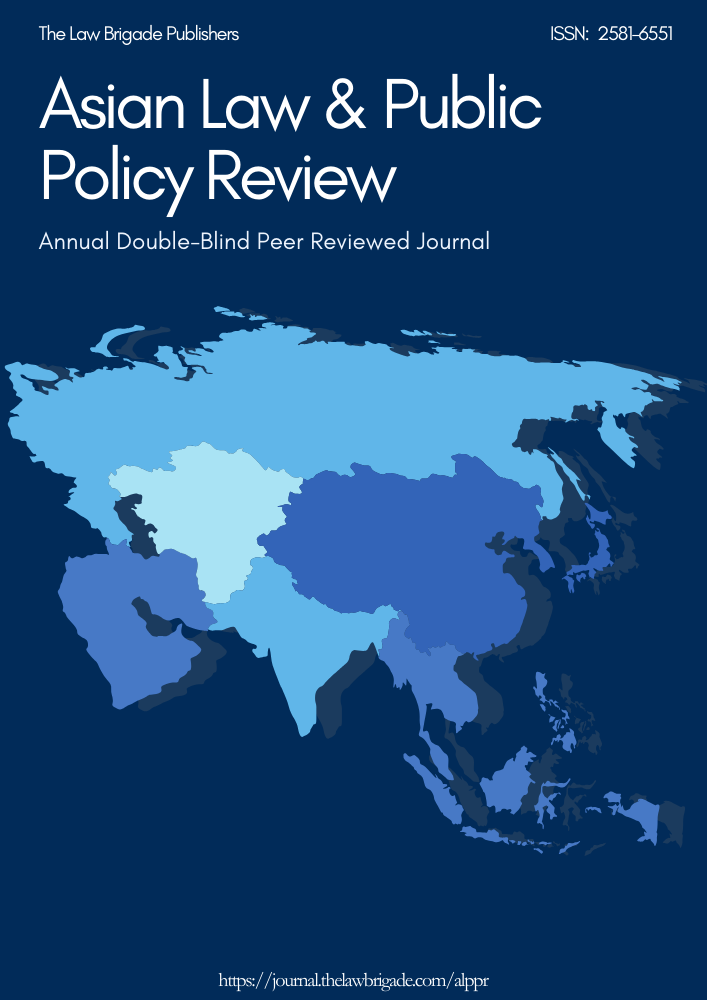Decriminalization of Adultery by the Supreme Court of India: An Analysis from Gender Perspective
Keywords:
adultery, decimilization, constitution, supreme courtAbstract
The one and half centuries old statutory provision of adultery, as define under section 497
IPC, 1860 seeks to punish only men for adultery and treats women involved in the crime as
victims. It also provides for criminal sanction against a man for having sexual intercourse with
someone else’s wife without her husband’s consent. In the present age the meanings of gender
and sexuality have undergone a lot of change and women are being treated equally with men.
The relationship, position and status of the wife within the family have undergone radical
changes. The relationship between the two is no more that of master and servant. Women are no
more considered the property of their husband. Both are equal in eye of law and equality is the
governing parameter over them. On 27th September the Supreme Court in its judgment in Joseph
Shine’s case, striking down Section 497, declared that it is unconstitutional, as it violates Articles
14, 15 and 21 of the Constitution.
Downloads
Downloads
Published
Issue
Section
License

This work is licensed under a Creative Commons Attribution-NonCommercial-ShareAlike 4.0 International License.
License Terms
Ownership and Licensing:
Authors of research papers submitted to any journal published by The Law Brigade Publishers retain the copyright of their work while granting the journal specific rights. Authors maintain ownership of the copyright and grant the journal the right of first publication. Simultaneously, authors agree to license their research papers under the Creative Commons Attribution-ShareAlike 4.0 International (CC BY-SA 4.0) License.
License Permissions:
Under the CC BY-SA 4.0 License, others are permitted to share and adapt the work, even for commercial purposes, provided that appropriate attribution is given to the authors, and acknowledgment is made of the initial publication by The Law Brigade Publishers. This license encourages the broad dissemination and reuse of research papers while ensuring that the original work is properly credited.
Additional Distribution Arrangements:
Authors are free to enter into separate, non-exclusive contractual arrangements for distributing the published version of the work (e.g., posting it to institutional repositories or publishing it in books), provided that the original publication by The Law Brigade Publishers is acknowledged.
Online Posting:
Authors are encouraged to share their work online (e.g., in institutional repositories or on personal websites) both prior to submission and after publication. This practice can facilitate productive exchanges and increase the visibility and citation of the work.
Responsibility and Liability:
Authors are responsible for ensuring that their submitted research papers do not infringe on the copyright, privacy, or other rights of third parties. The Law Brigade Publishers disclaims any liability for any copyright infringement or violation of third-party rights within the submitted research papers.


